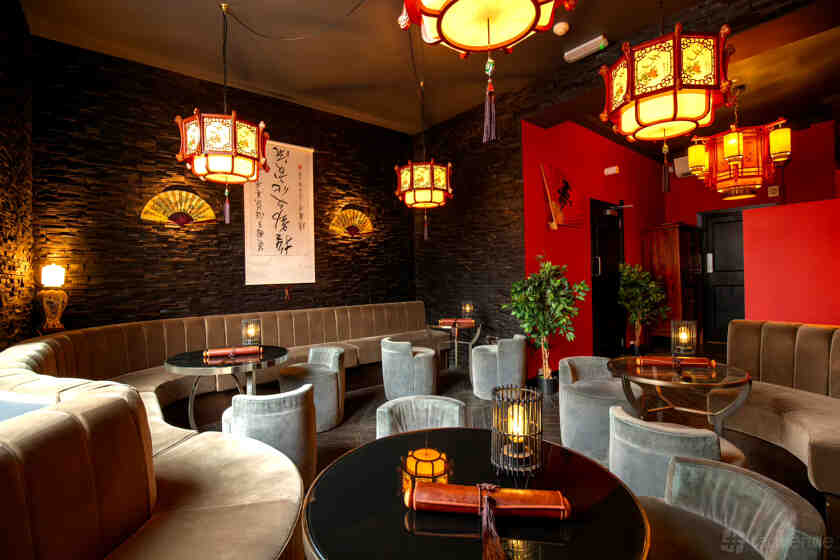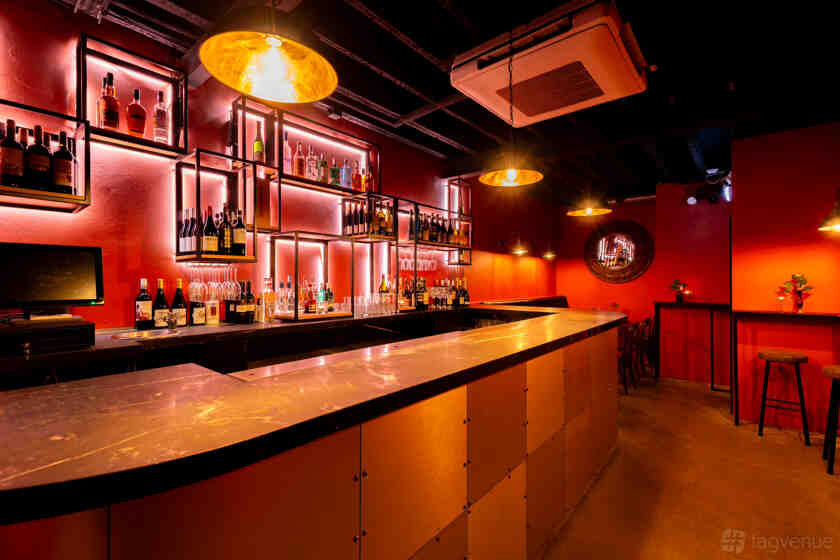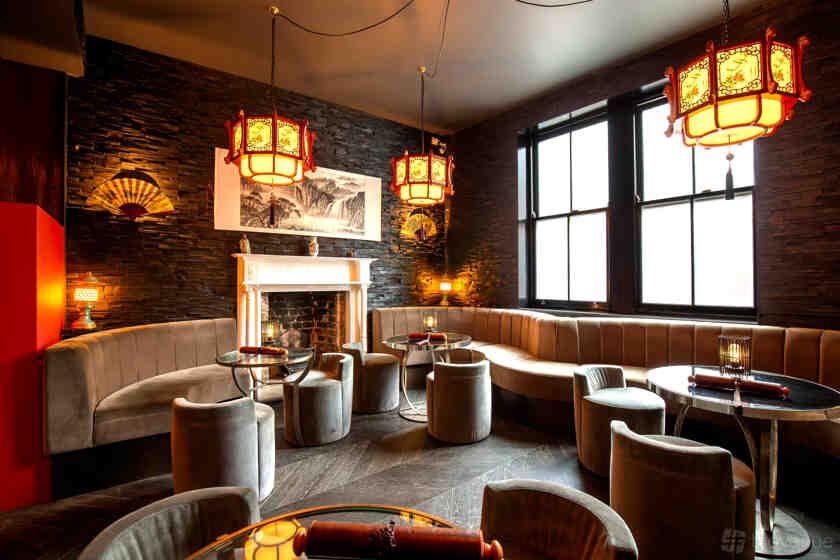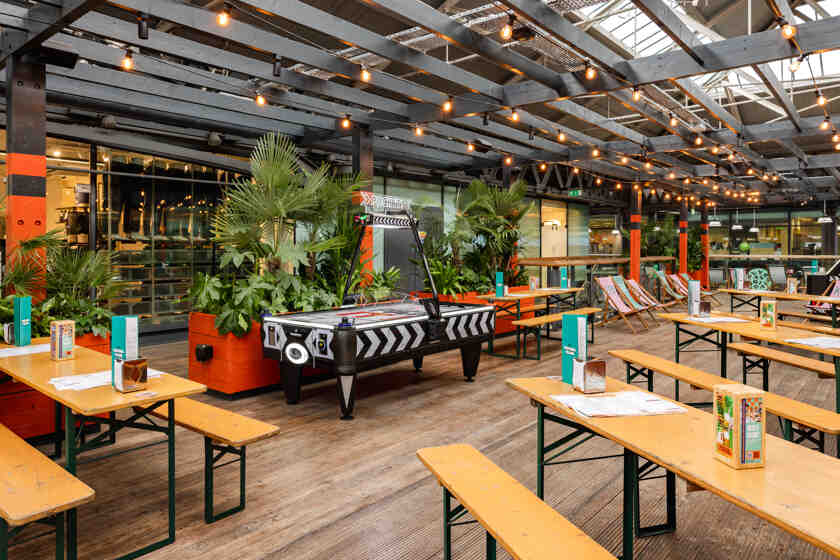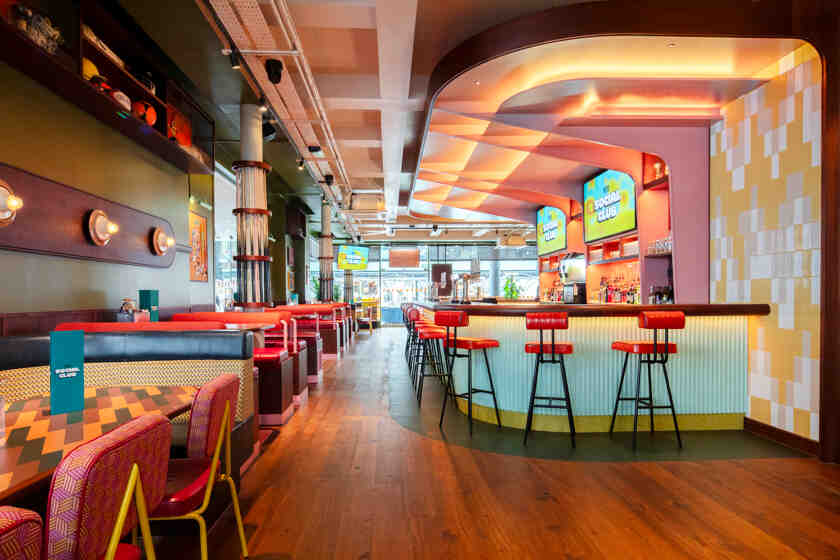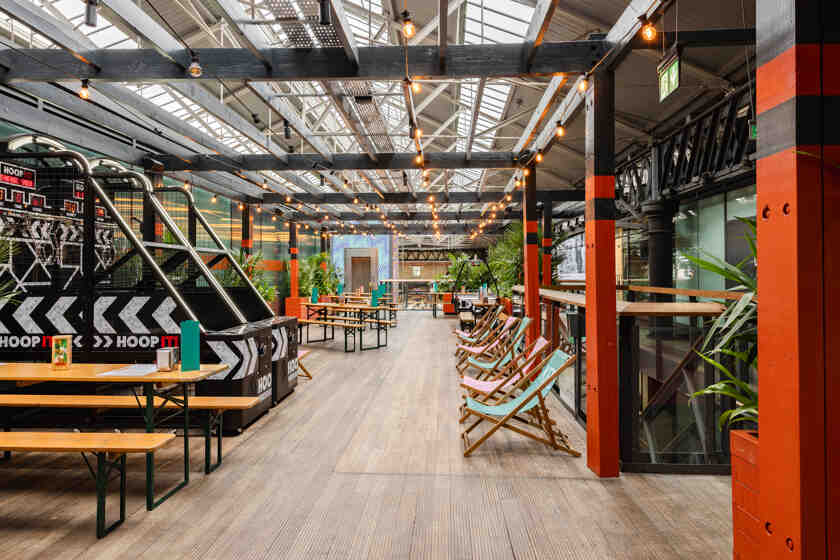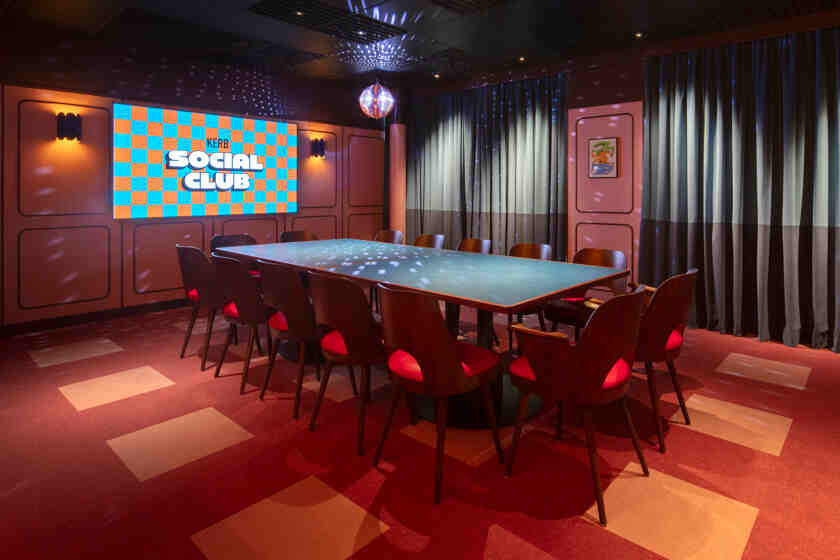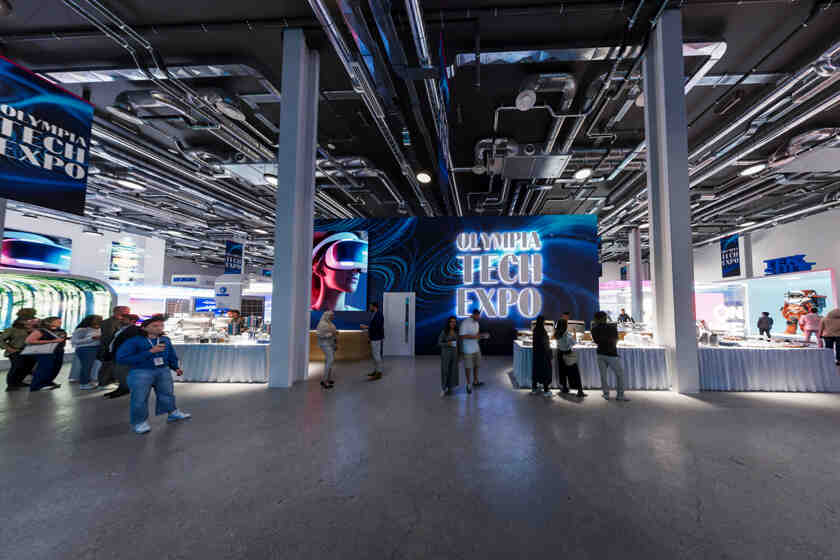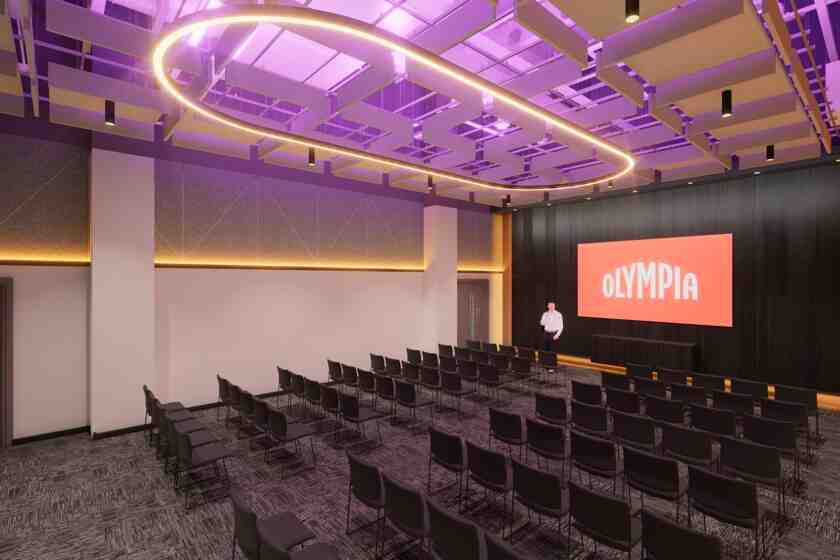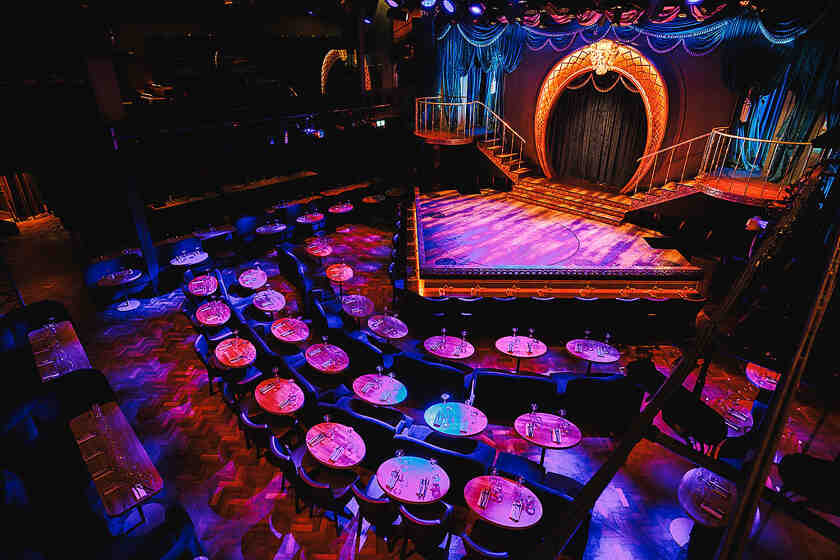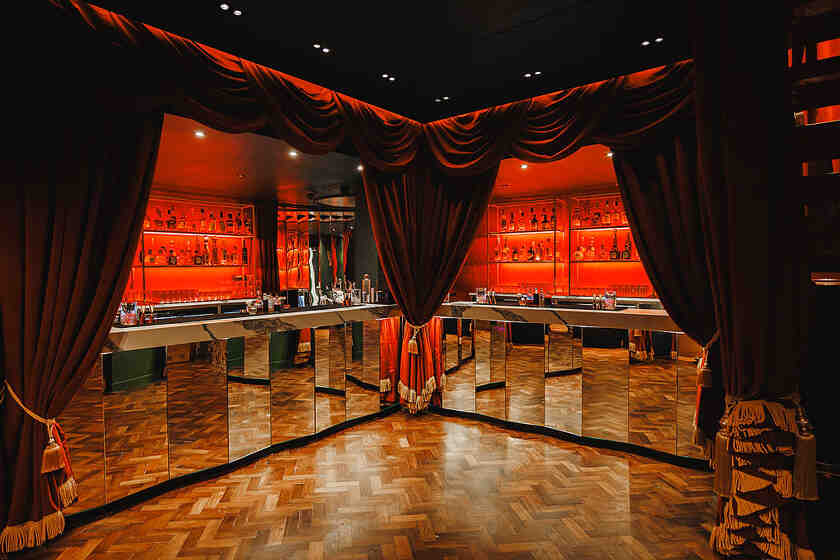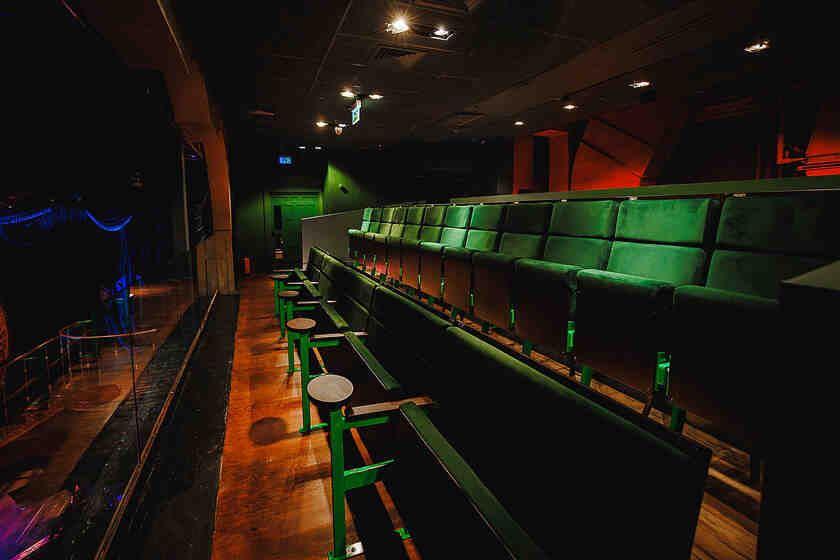Top Trending Meeting Rooms for Hire in London for 2025
Here at Canvas we offer the best selection of meeting rooms for hire in London. We showcase both designated corporate meeting rooms, specifically designed to meet your every possible business need, as well as the most unique and unusual meeting room venues in which to run a boardroom meeting or even strategy, team-building and creative brainstorming sessions out of the office.
With so much out there to choose from, it’s a fantastic opportunity to select a venue that is both at the top of its game and which will help you to make your meeting stand out from the crowd, engaging your guests to a much greater extent in a space that is as inspiring creatively as it is practical.
- EustonPrice on requestStanding1000Theatre839Cabaret544Dining600Boardroom40
- Kings CrossFrom £2,000per morningStanding700Theatre60Dining65
- Canary WharfFrom £600per dayStanding40Theatre2Cabaret24Dining15Boardroom15
- Notting HillFrom £350per hourStanding100Theatre70Cabaret32Dining48
- Liverpool StreetResponds within 24 hoursFrom £250per morningStanding600Theatre300Cabaret300Dining300
- KensingtonResponds within 48 hoursFrom £25,000per dayStanding7000Theatre4000Cabaret255Dining400
- EmbankmentResponds within 48 hoursFrom £10,000per dayStanding810Theatre410Cabaret100Dining150
- FarringdonFrom £6,000per eveningStanding400Theatre300Cabaret200Dining200Boardroom72
- PaddingtonResponds within 12 hoursFrom £75per hourStanding400Theatre350Cabaret140Dining230Boardroom30
- Lombard StreetFrom £50per hourStanding40Theatre40Cabaret28Dining20Boardroom16
- Leicester SquareFrom £45per dayStanding240Theatre60Cabaret35Dining60Boardroom27
- Portobello /ladbrokegrove/nottinghillResponds within 24 hoursFrom £500per hourStanding450Theatre120Cabaret60Dining160Boardroom33
- Old StreetFrom £750per dayStanding30Theatre30Cabaret25Dining25Boardroom25
- West LondonResponds within 4 hoursFrom £500per morningStanding700Theatre100Cabaret50Dining240Boardroom44
Most Popular Meeting Rooms for Hire in London
Meeting Rooms in London 2026 Trends, Top Areas, and Booking Tips
London remains one of the world’s premier cities for business gatherings and events. From board presentations and team off-sites to training, sales kick-offs and client pitches, meeting room venues in London run the gamut—from high-rise boardrooms and five-star hotels to creative lofts, galleries and coworking hubs. With unrivalled transport links (air, rail, Tube & Elizabeth line), deep sector clusters (finance, tech, media, legal, life sciences), and a hyper-competitive venue market, the capital is perfectly set up for productive, memorable meetings in 2026.
Why London is a top city for meeting room hire in 2026
• Connectivity that works for hybrid teams: multiple international airports, Eurostar at St Pancras, extensive Underground/Overground/Elizabeth line network, and plentiful hotels at every price point.
• Venue variety for every brief: large-scale convention centres (e.g., ExCeL) sit alongside design-led hotels, members’ clubs, coworking suites and unique spaces (warehouses, galleries, rooftops, cinemas).
• Industry density: the concentration of FTSE multinationals, high-growth start-ups and global agencies makes in person collaboration valuable—and keeps meeting room venues in London highly competitive on service and tech.
2026 venue trends to watch
1) Hybrid-ready, high tech spaces
Expect plug and play rooms with fast, reliable Wi Fi, dual large displays or LED walls, room mics & beamforming sound, 360° or auto-tracking cameras, and native Zoom/Teams/Meet integrations. Tech support on call is increasingly standard, not a luxury. Bonus points for interactive whiteboards, BYOD connectivity (HDMI & USB C), and simple touch-panel control.
Pro tip: shortlist rooms that exceed your minimum AV needs (e.g., second screen, backup camera). If a critical client joins remotely, redundancy is your friend.
2) Wellness-focused environments
Biophilic touches (natural light, plants, timber & stone finishes) and ergonomic setups are now mainstream. In 2026 you’ll see adjustable lighting, sit stand tables, quiet recharge nooks, terrace access, and healthy, brain boosting menus. The net benefit: better energy, attention and outcomes across the day.
Pro tip: Ask venues for daylight and fresh air stats, or simply request a south /west facing room for afternoon workshops.
3) Creative formats & flexible layouts
Movable walls, modular furniture and writable surfaces turn a static boardroom into a multi zone collaboration hub. Expect reconfigurations from plenary to breakouts in minutes. For innovation sessions, look for idea paint walls, touchscreen canvases or even VR set ups.
Pro tip: Book one oversized breakout space rather than two tiny rooms—flow and comfort trump proximity.
4) Sustainable & low-impact choices
From venues on renewable power to paperless meeting kits, London operators are pushing greener standards. Look for waste lite catering, refill stations, recycled materials, ESG reporting and third party certifications. Sustainability often overlaps with wellness (more daylight, plants, local suppliers) and can elevate brand perception.
How to choose the right meeting room (checklist)
Location & vibe
Match neighbourhood to objective. Financial credibility? City or Canary Wharf. Creative energy? Shoreditch or Soho. Fast inbound travel? King’s Cross/Euston or Paddington. Consider the congestion charge, parking, and station walking times.
Capacity & layout
Start with headcount and preferred format (boardroom, U shape, cabaret, theatre). It’s cheaper to get the Goldilocks fit than to over spec a ballroom you won’t fill.
Budget
Plan beyond base hire: VAT, service, AV, technician hours, overtime, storage, cloakroom, and corkage if self catering applies. Compare room only, DDR, and minimum spend models.
Amenities & AV
List must haves (dual screens, hybrid kit, flipcharts, whiteboards, stage, lectern, handheld/lapel mics). Confirm what’s included and what’s billable.
Accessibility
Confirm step free access, lifts, accessible washrooms and hearing loops. If guests are rail arriving, favour venues within a 5–8 min walk of major stations.
Catering & support
Decide between in house catering vs. dry hire. Ask about dietary coverage (vegan, halal, kosher, gluten free), coffee quality (barista vs. urn), and on site tech/event managers.
Best areas in London to book meeting rooms
1. City of London (Square Mile)
Prestige and proximity to finance, legal and professional services. Expect premium boardrooms with skyline views, historic livery halls, and corporate grade AV. Weekday buzz; quieter at weekends.
Best for: investor meetings, legal reviews, C suite sessions.
2. Canary Wharf & Docklands
Sleek towers with modern, high tech facilities and Elizabeth line access. Pricing can rival the City mid week; weekend value can be excellent. River views and polished service are common.
Best for: banking/FS trainings, large internal meetings needing reliable tech.
3. King’s Cross & Euston
A regenerated innovation hub with superb connectivity (national rail + Eurostar). Venues range from design led hotels to converted warehouses and arts spaces. Great for day long workshops with plenty of public squares and dining nearby.
Best for: multinational teams, tech & product sprints, Europe UK meetups.
4. Soho & the West End
Central, lively and creative. Think boutique hotels, screening rooms, private studios and members’ clubs. Spaces skew smaller and can be pricier per hour, but the post meeting options are unmatched.
Best for: pitches, media/agency sessions, brainstorms.
5. Shoreditch & East London
Street art cool meets startup energy. Warehouses, galleries and coworking hubs with modular layouts and artisan coffee on tap. Often better value than the West End for style forward spaces.
Best for: design sprints, workshops, team off sites with personality.
6. South Bank / London Bridge
Iconic riverside venues, major cultural institutions and strong connectivity (Waterloo, London Bridge). A mix of auditoria, contemporary conference centres and industrial chic spaces.
Best for: conferences with social add ons, hybrid events, creative showcases.
Example of a creative industrial space: BRIX in London Bridge pairs exposed brick and high ceilings with flexible rooms—great for workshops, showcases or informal receptions.
Cost breakdown: realistic 2026 benchmarks
Pricing models
• Hourly room hire: ideal for short sessions and small teams.
• Half day / full day hire: better value per hour; may include basic AV.
• Day Delegate Rate (DDR): per person bundle (room + AV basics + Wi Fi + catering).
• Minimum spend (F&B): some hotels, restaurants and pubs waive hire if you hit an agreed food & drink spend.
Typical ranges to expect (London-wide, venue dependent)
• Hourly (small rooms / coworking): ~£30–£50+ per hour in budget locations; £75–£150+ in prime zones.
• Full day room hire (mid range): ~£300–£600 for simple spaces; £1,000+ for prestigious rooms or larger suites.
• DDR packages: budget options from ~£50–£70+ VAT pp; popular mid market around £75–£95+ VAT pp; premium can exceed £100+ VAT pp depending on menus and kit.
• City/West End premiums: expect higher rates, especially Tue–Thu.
Line items that move the needle
Technician hours, extra microphones/cameras, hybrid platform support, late checkout, room resets, security, storage, printing and upgraded snacks/menus.
Booking tips to save money (without downgrading the experience)
1. Book early & compare at least three like for like quotes. Ask venues to price room only vs. DDR vs. minimum spend—then choose the value winner.
2. Use off peak windows: Mondays & Fridays, afternoons vs. mornings, and shoulder months often yield 10–20% savings.
3. Negotiate small upgrades: barista coffee, an extra breakout, or complimentary flipcharts/AV adaptors can meaningfully improve the day.
4. Be explicit about hybrid: confirm camera/mic model, screen size, uplink speeds, and whether a tech on call is included.
5. Protect the budget: get an itemised quote with VAT, service, and potential overtime. Cap extras where possible.
6. Try minimum spend venues if you’re feeding delegates anyway—it swaps hire fees for catering spend.
7. Read cancellation terms and set internal go/no go dates accordingly.
Quick pick area guide (by meeting goal)
• Investor/C suite gravitas: City of London, Mayfair, Canary Wharf.
• Hybrid & European access: King’s Cross / St Pancras, Euston.
• Creative energy: Soho, Shoreditch, Holborn, Hackney.
• Big plenary / auditoria: South Bank/Westminster, Docklands (ExCeL), Canary Wharf.
• Value plays with good links: Hammersmith, Stratford, Greenwich, Paddington.
Sample RFP checklist (copy/paste into your enquiry)
• Date(s) & time(s)
• Headcount (min/max)
• Layouts needed: (boardroom / cabaret / theatre / classroom / U shape / pods)
• Breakouts: number & sizes
• Hybrid requirements: platform, camera(s), mics, recording, technician
• Displays: count & size; secondary confidence monitor
• Connectivity: dedicated bandwidth, Wi Fi SLA
• Catering: arrival, morning, lunch, afternoon; dietary needs; coffee type
• Accessibility: step free access, hearing loop
• Sustainability: waste, water, energy, reporting
• Budget: target range; pricing model preference
• Extras: cloakroom, signage, print, storage, security, late checkout
Show More+
Popular areas for meeting venues in london
- Aldgate
- Aldgate East
- Aldwych
- Angel
- Bank
- Bankside
- Barbican
- Barnsbury
- Battersea
- Bermondsey
- Bethnal Green
- Bishopsgate
- Blackfriars
- Bloomsbury
- Bond Street
- Borough
- Brixton
- Cambridge Heath
- Camden
- Camden Borough
- Canary Wharf
- Cannon Street
- Canonbury
- Central London
- Chancery Lane
- Charing Cross
- Chelsea
- City of London
- Clapham
- Clapham Junction
- Clerkenwell
- Covent Garden
- Dalston
- De Beauvoir Town
- Drury Lane
- East London
- Elephant and Castle
- Embankment
- Euston
- Farringdon
- Fenchurch Street
- Finsbury
- Fitzrovia
- Fulham
- Goodge Street
- Great Portland Street
- Green Park
- Greenwich
- Hackney
- Hackney Central
- Hackney Marshes
- Hackney Wick
- Haggerston
- Hammersmith
- Hammersmith and Fulham
- High Holborn
- Holborn
- Homerton
- Hoxton
- Hyde Park
- Hyde Park Corner
- Isle of Dogs
- Islington
- Islington Borough
- Kensington
- Kings Cross
- Lambeth
- Leicester Square
- Lisson Grove
- Liverpool Street
- London Bridge
- London Fields
- Mansion House
- Marble Arch
- Marylebone
- Mayfair
- Mile End
- Monument
- Moorfields Eye Hospital
- Moorgate
- North East London
- North London
- Notting Hill
- Old Street
- Oxford Circus
- Oxford Street
- Paddington
- Pentonville
- Piccadilly
- Piccadilly Circus
- Pimlico
- Portsoken
- Primrose Hill
- Regent Street
- Regents Park
- Russell Square
- Shadwell
- Shoreditch
- Soho
- South Bank
- South East London
- South Hackney
- South London
- South West London
- Southwark
- Southwark Borough
- Spitalfields
- St Paul's
- St. James's Park
- Stepney
- Stoke Newington
- Stratford
- Temple
- The City
- The West End
- Tottenham Court Road
- Tower Bridge
- Tower Hamlets
- Tower Hill
- Vauxhall
- Vauxhall Bridge
- Victoria Park
- Victoria Station
- Wandsworth
- Wapping
- Warren Street
- Waterloo
- West London
- Westminster
- Whitechapel
Show More+
FAQs Meeting Rooms for Hire in London
You’d be really surprised how affordable it can be to hire a meeting room in London, even on a regular basis. As workforces are becoming less centralised, many working spaces are offering flexible rates for different meeting requirements and frequencies. If you are considering making a regular booking, it’s worth asking the venue manager whether you can get a repeat discount.
The best location is always going to be the one that’s most convenient for your job. It can be tempting to book in a traditional space in Canary Wharf, but it’s not always logical to get your colleagues to trek across London if you’re normally based in West or North London. Most areas of the city have multiple options for meeting spaces, so try using Canvas to look around your local area, and only broaden your search if you can’t find what you need.
Each venue will offer different rates, amenities, and facilities, so it’s always good check in with the venue manager to ask what will be included. The best venues will include all the furniture and set-up, fast WiFi and AV equipment. If you would like to host a catered meeting, they may be able to offer that for you or have recommendations for local places to get food delivered
Canvas is the perfect place to find your next meeting room hire in London. We have the most advanced filter when it comes to finding a venue, so you know the options you’re seeing will be perfect for you. All of our venues are handpicked, and we have curated shortlists of some of our favourite spaces on the blog if you’d like some inspiration.
We have more than 20 beautiful hotels with us on Canvas that also offer meeting facilities, so it’s best to start there. All you need to do is search for meeting spaces, then select “Style” on the search results page and choose “Hotels”. When you make an enquiry, remember to mention that you’re also looking for accommodation, and if possible provide a rough estimate of the number of guests you’re expecting.
The perfect venue depends entirely on you! Depending on the tone of the event, the amenities you will need, the amount of people you plan on inviting, your budget, and the location, you may be best suited to any of the above. The best thing to do is simply think about what you want, look at your options, and go from there.
As for the shortest time you can book a meeting for, many venues offer flexible booking options, with some allowing time slots as short as one hour. This is particularly convenient for event planners looking to organise quick meetings or interviews.


